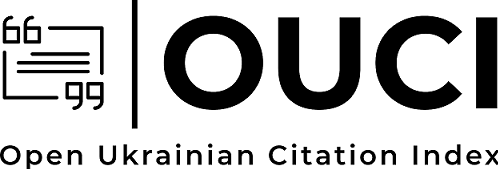Європейські міста у закордонних студіях Миколи Рігельмана
DOI:
https://doi.org/10.28925/2524-0757.2023.214Ключові слова:
Микола Рігельман, Російська імперія, урбаністика, тревелоги, міський простірАнотація
У статті розглянуто коло питань, пов’язаних з подорожами російського історика й громадського діяча Миколи Рігельмана європейськими країнами у 40–60-х рр. ХІХ ст. Основою для розвідки стали тексти його тревелогів, які відзначалися суб’єктивністю, відсутністю чіткої структури й неузгодженістю щодо викладу матеріалу. Проте тревелоги містять описи повсякдення, які складно або неможливо відтворити за іншими джерелами. Мандрівника приваблювали не лише матеріальна культура, але й звичаї, традиції, світоглядні переконання жителів різних країн. З’ясовано, що М. Рігельман акцентував увагу на кількох аспектах, пов’язаних з міським простором, — загальних описах ландшафтів, особливостях забудови, архітектурних пам’ятках переважно релігійного штибу. Привертають увагу й певні проблеми, спільні для європейських й українських міст, зокрема бруд на вулицях і, часом, занедбаність житлового фонду. Перебуваючи під впливом імперської ідеології, мандрівник постійно, нерідко скептично, порівнював життя у європейських країнах з повсякденням Санкт-Петербурга і фіксував негативне ставлення європейців, особливо німців, до Російської імперії.
Завантаження
Посилання
Bevzyuk, Ye. V. (2011). Diyalnist L. Shtura v slovatskomu natsionalnomu vidrodzhenni. Naukovi pratsi istorychnoho fakultetu Zaporizkoho natsionalnoho Universytetu, 31, 286–294. [in Ukrainian].
Kolmakov, N. M. (1894). Ocherk deiatelnosti Kievskogo slovianskogo blagotvoritelnogo obshchestva za 25 let ego sushchestvovaniia. Kyiv [in Russian].
Matyash, I. B. (ed). (2007). Ukrayinski arkhivisty (ХІХ–ХХ st.). (pp. 533–534) [in Ukrainian].
Miyakovskyi, V. (1929). Kyrylo-metodiivtsi v arkheohrafichnii komisii. Yuvelinyi zbirnyk na poshanu akademika Mykhaila Serhiiovycha Hrushevskoho, 1, 312–324 [in Ukrainian].
Moroz, V. V. (2011). Dvorianstvo Livoberezhnoi Ukrainy i literatury druhoi polovyny ХІХ — pochatku ХХ st. Humanitarnyi zhurnal, 1–2, 31–37 [in Ukrainian].
Rigelman, N. A. (1846). Dva pisma iz Veny. Moscow [in Russian].
Rigelman, N. A. (1847). Prodolzhenie pisem iz Veny. Moscow [in Russian].
Rigelman, N. A. (1871). Tri poiezdki za granitsu. Moscow [in Russian].
Shandra, V. S. (2005). Heneral-hubernatorstva v Ukraini: ХІХ — pochatok ХХ stolittia. Kyiv [in Ukrainian].
Sokhan, P. S. (ed). (1990). Kyrylo-Mefodiivske tovarystvo. (Vol. 3), Kyiv: Naukova dumka [in Ukrainian].
Zhurba, O. I. (1993). Kyivska arkheohrafichna komisiia 1843–1921. Kyiv: Naukova dumka [in Ukrainian].
Опубліковано
Як цитувати
Номер
Розділ
Ліцензія
Авторське право (c) 2023 Олег Іванюк, Євгенія Білодід

Ця робота ліцензується відповідно до Creative Commons Attribution-NonCommercial-ShareAlike 4.0 International License.
Автори, які публікуються у цьому журналі, залишають за собою право на авторство своєї роботи та передають журналу право першої публікації цієї роботи на умовах публічної ліцензії Creative Commons: Attribution-NonCommercial-ShareAlike 4.0 International (CC BY-NC-SA 4.0), котра дозволяє іншим особам вільно розповсюджувати опубліковану роботу з обов'язковим посиланням на авторів оригінальної роботи та першу публікацію роботи у цьому журналі.














